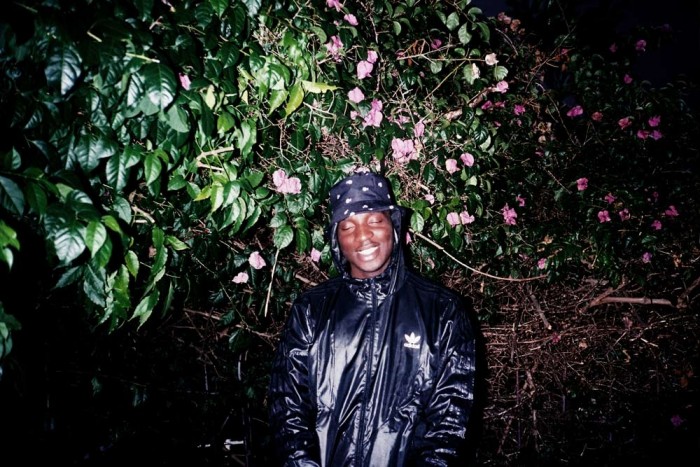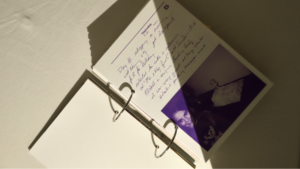
Whose voices represent half of the world’s population? Those born in 1989 and later.
They are only now beginning to be heard and made more prolific by the digital age which also so happened to come about in 1989 with the creation of the World Wide Web. Many things changed around the globe, and in South Africa it was on the cusp of finally becoming free and democratic in 1994.
Mapping what motivates and informs their practice, and how they innovate as digital natives for the Cape Town inaugural 89plus post panel at Design Indaba 2014, we now introduce photographer/art director and participant Jody Brand.
Together with 89plus co-founders Hans Ulrich Obrist, and Simon Castets and myself, Missla Libsekal (Another Africa founder) we talked with Jody, a digital native belonging to 50% of South Africa’s median age group.
Jody candidly shares her resonating insights on letting go of prejudices, working with other brown artists, and how reblogging is really killing visual culture and feeling nostalgic for Myspace. Back then it opened up her mind, making her feel like she wasn’t a ‘wierdo…’ and part of space that gave her hope.
If your work could be described by keywords what would they be?
JODY BRAND | Raw and honest. It’s the reaction most people have when seeing my work and that’s awesome because it’s exactly how I feel, like the realest person alive!
How does location figure into your practice?
I’m very sensitive to energy, the energy a space caries and the energy that people bring to a space and I like to think I respond to that and communicate that through my work. It’s all there stripped down completely naked. In order to do this truthfully and with integrity I believe one has to bring a positive attitude and let go of prejudices and I kind of let my instincts take over and guide me. Conversely if I feel that I’ve compromised this integrity in any sense, I scrap the work.
What projects are you working on?
A poster series together with another female artist, Laura Windvogel, who goes by the alias Lady $kollie. I am very passionate about working with other brown artists, especially brown women. Everyday as a female I am challenged by the idea that my body does not belong to me in the media, in art and fashion and more blatantly on the streets where I am constantly harassed. My general attitude is to ignore this; however I feel it is becoming increasingly difficult. Laura’s work deals with sexuality, and I felt like this was the right time for me to deal with this. In the show we will do a series of portraits dealing with female sexuality with emphasis on the experience of brown girls and put together a manifesto as reclamation of our bodies and sexuality accompanied by a zine of feminist writing and poetry and work by fellow female artists.
The next show is a model which I am working on in partnership with my friend Negiste Yesside Johnson called Adult Contemporary. We will be working as curators, and aim to put together a showcase of the best and most innovative South African talent (focusing particularly on new mediums like performance, video work, installation and the idea of fashion as art). Think my generation has yet to reach the agenda of the corporate art market, however I’ve learnt we can’t sit around and wait for someone else to realise our dreams, but to chase them actively with vigour and determination.
I’m also working on putting together a photography show later on in the year speaking on what it means to be young, and black, and South African. It will include work by Brian Molepo, Lesedi Mogale and myself.
Though your work takes shape in other formats, such as gallery shows and performances, its primary setting is your Tumblr. How does Tumblr influence, inspire or affect the content of your work, its aesthetic, and its reception?
Tumblr sucks. At the moment it is just a platform where I can upload my images. The process and action of reblogging is really killing visual culture. No one cares about where an image comes from or what it means and it ends up being just empty aesthetics. I guess the best thing about tumblr is it’s reach. I receive messages from people all over the world and the reaction is mostly the same “Where is this place it looks amazing!” that’s the best response I could ever ask for really. When people get to see that there’s more to South Africa than poverty, AIDS and Die Antwoord.
How would you describe your relationship to online socialization, and do you see it playing a part in your work?
At the moment the relationship is quite shaky and I personally go through bouts of despising the monster that the internet has become however I cannot deny its force in getting me to where I am today. I’ve met some of my best friends on the internet, I kinda wish that was a joke but it’s the truth. I’ve always been fairly good at socializing however social media took that to another level. I remember the days of Myspace and how it opened my mind. For the first time I didn’t feel like such a weirdo. There were other people just as strange as I was and it gave me hope. In terms of my work and art in general I find accessibility to be a major issue. I make art inspired by people and for people therefore I want my work to be available to anyone and everyone. I often find that this is not the case with gallery space especially in South Africa however anyone can access the internet whether it’s an internet cafe or smartphone and that freedom and democratic approach is important to me..
What will change everything?
Innovation technology is changing everything and will continue to do so however living in a generation of such rapid growth very little surprises me in fact I am quite disappointed in the current level of development in technology in Africa. For example why don’t we all have wifi I think that would really change everything when everyone has access to the same information it levels the playing field so to speak. I think once we’ve found a cure to AIDS I’ll be really impressed or perhaps when we return to humanity. I can understand why people were so disappointed when the Mayan apocalypse didn’t come ’round. Feel like we need to start all over, get in touch with reality and the human experience.
Chomma, the title of your tumblr blog is slang for “friend.” Does this theme also drive how/who you choose to photograph?
Yeah I mostly take photographs of my friends because they are beautiful and inspire beauty in me but also because of the precarious nature of photography and the relationship between photographer and subject. If I engage with my subjects from an honest space of admiration,love, respect and understanding as I would to a friend then I feel like the work can retain artistic integrity a quality that is vital to me: to be real. There are far too many photographers in this industry who rape an aesthetic and make big money of it and yet are so far removed from the realities attached to these aesthetics. I never want that for myself I’ve seen how hurtful it is no more National Geographic please!
How has the desire to give a “voice to the voiceless” inspired you? How does this relate to your practice of documentation through photography and your creative endeavours at large?
As a child I was fascinated by history and how it has shaped society something instilled in me by my parents however more fascinating to me were the people who never made it into the history books. I feel it is of great importance to document my history and that of the people around me, I see something special happening and I want to have ownership of that history and control over how my story is told. The “voiceless” or ordinary person on the street inspires me and I want to give them the opportunity to shine because they’re just as special. We’re all important, we’re all a part of this big thing.
How did you come to art?
I feel like it was more of an exorcism than an epiphany as such. I’ve always been “different” and creative but I was a bright student and felt obliged to follow academic pursuits. No one around me recognised how sensitive I am or how I had an eye for beauty and said “Hey you should be an artist!” it was never an option. For a long time I grappled with the idea of how to make myself happy and not disappoint the people who believed in me. It reached a point where I couldn’t suppress it any longer it was eating me from inside. I guess the real epiphany was when I gave up my steady job and made the decision to take myself seriously as an artist.
Within your contemporaries, whose work do you most relate to? Do you sometimes work collaboratively? Do you see generational creative patterns? Are you part a group of artists? A movement?
I’ve made it my duty to connect with other artists and almost always work collaboratively even my own photography is a collaboration between me and my subject I guess it is part of who I am. Making connections with people is incredibly important to me speaking to other artists helps me learn and grow and sharing what I have learnt with them helps me feel like I am actively participating in the transformation of art and of my people. I surround myself with people whom I admire and people who inspire me as corny as it may sound my friends are my favourite artists.







